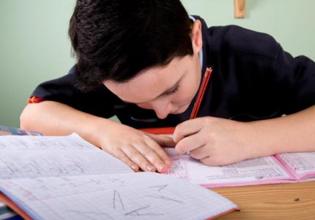Homework, homework, homework! What would school be if there wasn’t any homework! Rumour has it that teachers invented it, parents loved it and learners hate it. In this month’s article, I am planning to wear my teacher’s hat more firmly on my head and explore the issue of homework to discuss its aims, the way we use it in our everyday teaching reality and to see how it is related with the image of the school. The question is ‘can I wear my teacher’s hat without removing the hat of the consultant?’
Perhaps not, but I believe that when discussing homework it’s better for me to wear both hats.
The first point that has to be made is whether or not schools can survive without homework. Perhaps, provided certain conditions are met. Firstly, we would have to move to another country as the Greek Educational System, with its exams, tests and competition is the least suitable for such an experiment. If Foreign Language Schools (FLS) were to make the difference in this field, they would most probably fail. For a change as grand as this to succeed we would need the whole system to change, not parts of it. The first thing to change would be our teaching methods. If homework is to become a thing of the past, then learning should take place in class.
Consequently, more attention should be paid on the students, their learning needs, styles and their pace of learning, rather than the amount of material covered. In other words, our teaching should focus on quality and depth, rather than quantity and speed. Naturally, our current fast paced teaching (according to which teachers assign four practice tests for homework) ought to be forgotten. Unfortunately, none of these can happenunless we all change our perspective and I don’t mean just the teachers. Students would have to become more responsible for their own learning.
Learning would have to become more critical and focus less on memorisation. Finally, parents would have to modify their expectations. If all these conditions were met, then we could view homework differently and move to the next major change, that of the examination system.
Having said all these, I must admit that, as a learner not as a teacher, I don’t believe there can be long lasting learning without some sort of studying.
So, the question is not whether there is an aim behind homework, but whether the kind of homework we set serves this aim and if, at the end of the day, we do not attempt to use homework to cover up for any shortcomings in our teaching. Doing homework gives students some quiet time to go over the material, assimilate it and manage to reproduce it. This process guarantees better foundations for the learning that will follow. Now, the practical application of homework in class is a different matter.
Very often at teacher training sessions I am asked whether homework checking must be taken into consideration when planning lessons. The question might seem a bit naïve but it certainly isn’t. Leaf through any teacher’s book or any mass produced syllabus of any course book that consists of the usual four components and you will see how neglected homework checking is. It’s like it runs on auto pilot!
Unfortunately, homework checking is the most crucial part of assigning it. This is the time when teachers are given the chance to get feedback on the success of their teaching, while students can have their questions answered. If it is so important, why does homework checking get so little attention from writers and syllabus designers? This is mainly due to the fact that homework checking does not make the material progress. If the appropriate time is allocated to it, then the time available is not enough for the teachers to finish the book and the key concept behind mass produced syllabi is one: to show that the book is manageable and can be covered.
Having discussed its aim and practical application, we ought to see not how image is related with homework. For years our clients, the parents of our students, have believed that good schools are the ones which are strict, give many tests and assign a lot of homework. In our attempt to sustain our businesses we have aimed to convince them that they are right, believing that the content we sell is learning. Unfortunately, learning cannot be sold. As educators we can do our best to teach and to motivate our learners. It’s their responsibility to learn and, most importantly their learning is not related to the amount of homework we give them, since educational research has failed to connect learning with quantity.
On the contrary, too much homework might scare learners off or make it difficult for them to absorb and assimilate the material. Therefore, if we want to impress parents we should strive to do so via our teaching and our ability to inspire their offspring to learn. Quite contrary to that our teaching suffers because of homework as it is often used to cover gaps in teaching.
So, whatever is not done in class (perhaps because there was no lesson plan, no time management scheme and poor class management) is assigned as homework. The problem is that since the material has not been properly presented, we cannot claim that learners are practising or assimilating it.
The result is that learners get so confused that they run to their parents asking for help. Parents, excellent speakers though they might be, tend to give confusing explanations and to translate. In a nutshell, they perpetuate their way of learning and encourage all the strategies we aim to discourage. Is that the parents’ fault? Not at all! It’s our fault. Because every time our students ask their parents’ help we prove ourselves to be less professional and we ask the non-experts to do our job.
Does homework of this sort impress parents? Probably not, although some of them feel pleased that the school they pay gives tons of homework that keeps their children busy. So, what can we do? I will answer by quoting Lilika Couri who always maintained that it is our job to condition parents. After all, they are the clients and we are the experts, no matter if we are teachers or directors of studies.
As experts we know that useful homework is the one that is assigned after it has been properly worked on in class and gets checked after it’s done. If we intend to assign 120 pages of miscellaneous grammar tasks for Christmas homework we should also estimate how much useful teaching time checking this is going to consume and which learning aims it will fulfil.
Homework is not a means of impressing parents; it’s a vehicle to learning. Therefore, it must have variety and range. Its aim should be to equip learners and not just to keep them busy. It should also recycle familiar material so that learners can do it unaided. Finally, homework will be respected by students and parents if it is assigned with respect by the teacher, no matter how little or uncomplicated it is.
Maria Sachpazian BA education / RSA dip/tefl (hons) is an ELF teacher employed at the Straight Up Markoyannopoulou schools. She is also an educational management specialist who has worked as a teacher trainer and materials’ developer. Maria and her associate George Moumoulidis run Input on Education, a company which provides academic support and consultancy to Foreign Language Schools.
www.input.edu.gr [email protected]
eltnews.gr/
Τελευταία νέα
- EUROPALSO: Προσωπικός Αριθμός – Τι Είναι – Πως Εκδίδεται
- EUROPALSO - φορολογικές υποχρεώσεις ιούνιος 2025
- EUROPALSO: Απογραφή υφιστάμενων αδειών ΚΞΓ <75 σε πληροφοριακό σύστημα OpenBusiness έως 1/12/2025
- EUROPALSO Εγκύκλιος 13/06/2025: Απογραφή ΚΞΓ σε OpenBusiness – WaterFun WaterPark – Βεβαιώσεις σπουδών για ΚΞΓ Society – ESB Online Exams for Adults – Νέες Παροχές για ΚΞΓ ESB – Advisory Offices – Υποχρεώσεις Ιουνίου 2025
- Δωρεάν Webinar: Partners in...Creativity! Transforming EFL through Human - AI Collaboration
- 1st Burlington Community Festival: ΔΩΡΕΑΝ για εκπαιδευτικούς και μαθητές 10/5 - Ίδρυμα Σταύρος Νιάρχος
- EUROPALSO Εγκύκλιος 29/04/2025: Απογραφή ΚΞΓ σε OpenBusiness – ESB Online Exams for Students, Κυριακή, 1/6 – ESB Online Exams for Adults – Νέες Παροχές για ΚΞΓ ESB – Advisory Office – Βεβαιώσεις σπουδών – Τουρνουά Σκάκι, 10/5 – Υποχρεώσεις Μαΐου, Νέα ωρομίσθια
- Απογραφή Κέντρων Ξένων Γλωσσών: Διευκρινήσεις Europalso
- Απογραφή Λειτουργίας Φροντιστηρίων και Κέντρων Ξένων Γλωσσών στο OpenBusiness
- EUROPALSO - ΦΟΡΟΛΟΓΙΚΕΣ ΥΠΟΧΡΕΩΣΕΙΣ ΜΑΙΟΣ 2025




